Probation Extension Letter Template for Employers
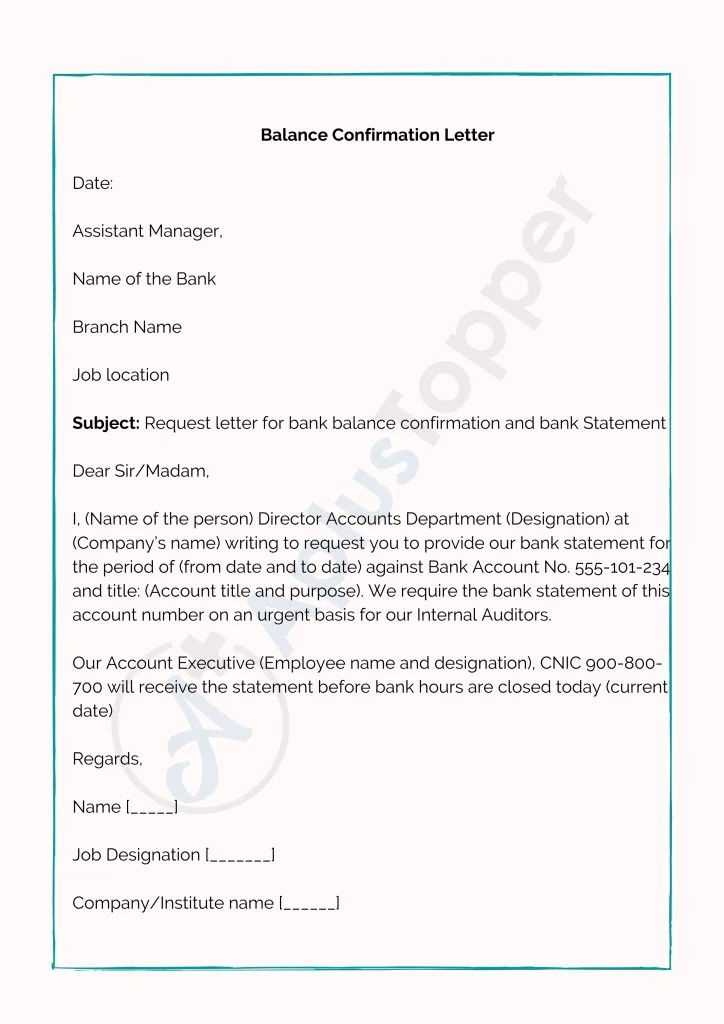
When an employee is nearing the end of their initial review phase, sometimes it’s necessary to provide additional time for assessment. This process ensures both the employer and the employee have enough time to make an informed decision about long-term employment. A formal notification is typically sent to the employee, outlining the new timeline and expectations.
When to Consider an Extended Review Period
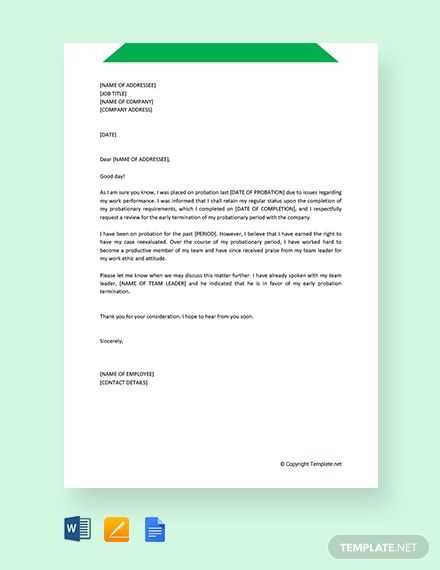
There are various reasons why extending the trial period may be the best course of action. Some common scenarios include:
- Employee needs more time to meet performance targets.
- There have been unforeseen circumstances affecting performance.
- More time is required to assess cultural fit within the team.
Key Details to Include
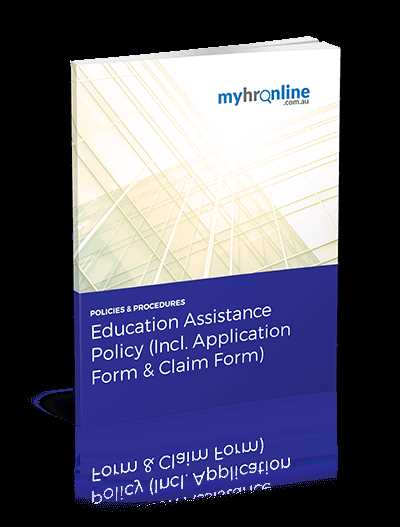
In order to maintain professionalism, the communication should clearly mention the reasons for the extension, as well as any specific expectations for the employee moving forward. Some of the main points to address are:
- Revised timeline for the next phase of evaluation.
- Specific goals or objectives to be met within the extended period.
- Feedback on the employee’s progress thus far.
Best Practices for Communication
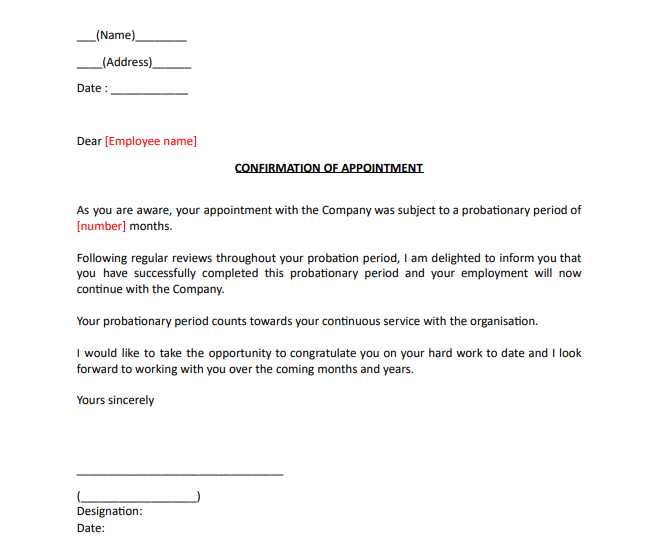
Ensure that the tone is respectful and constructive. The goal is to maintain a positive relationship with the employee while clarifying the need for more time. Here are a few tips to consider:
- Keep the message clear and to the point.
- Use a tone that is supportive yet professional.
- Provide a clear explanation of the next steps and timelines.
Sample Text for Notification
Below is a simple example of how you might structure your message:
Dear [Employee Name], We would like to inform you that your initial evaluation period will be extended for an additional [X] weeks. During this time, we would like to focus on the following objectives: [List of objectives]. We believe this additional time will help both of us make a well-informed decision regarding your future with the company. Best regards, [Your Name] [Your Position]
By following these guidelines, employers can ensure that the process is smooth, clear, and beneficial for both parties involved.
What is a Probation Extension Letter
When to Send a Probation Extension Letter
Key Elements of an Extension Letter
How to Write a Formal Notification
Common Errors to Avoid in Letters
Sample Letter Template for Probation Extension
When a new employee’s initial evaluation period is nearing its end, employers may decide to grant additional time to assess performance and fit within the team. This communication informs the employee about the decision and outlines the revised timeline and expectations. Sending such a formal notification ensures transparency and clarity for both parties involved.
When to Send a Notification
Employers might choose to extend the evaluation phase for several reasons, such as the need for more time to assess the employee’s skills, performance, or compatibility with the team. It’s essential to send the notification well in advance of the original review date to allow the employee ample time to understand the decision and expectations moving forward.
Key Elements to Include
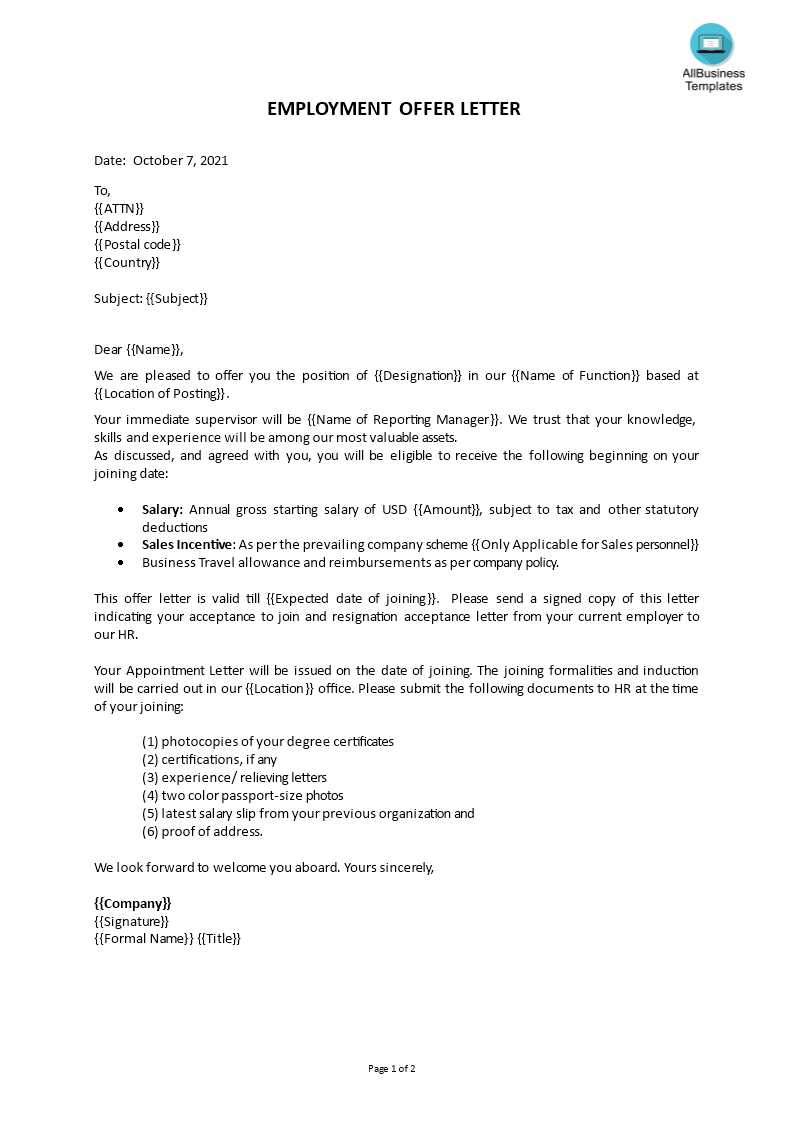
To maintain professionalism and clarity, certain key points should always be included in the message:
- New timeline: Specify the updated duration of the evaluation phase.
- Performance feedback: Include a brief overview of the employee’s progress and any areas requiring improvement.
- Goals: Highlight any specific targets or milestones to be achieved during the extended period.
By addressing these elements, the message will be clear, constructive, and helpful for the employee’s development.
Common Mistakes to Avoid
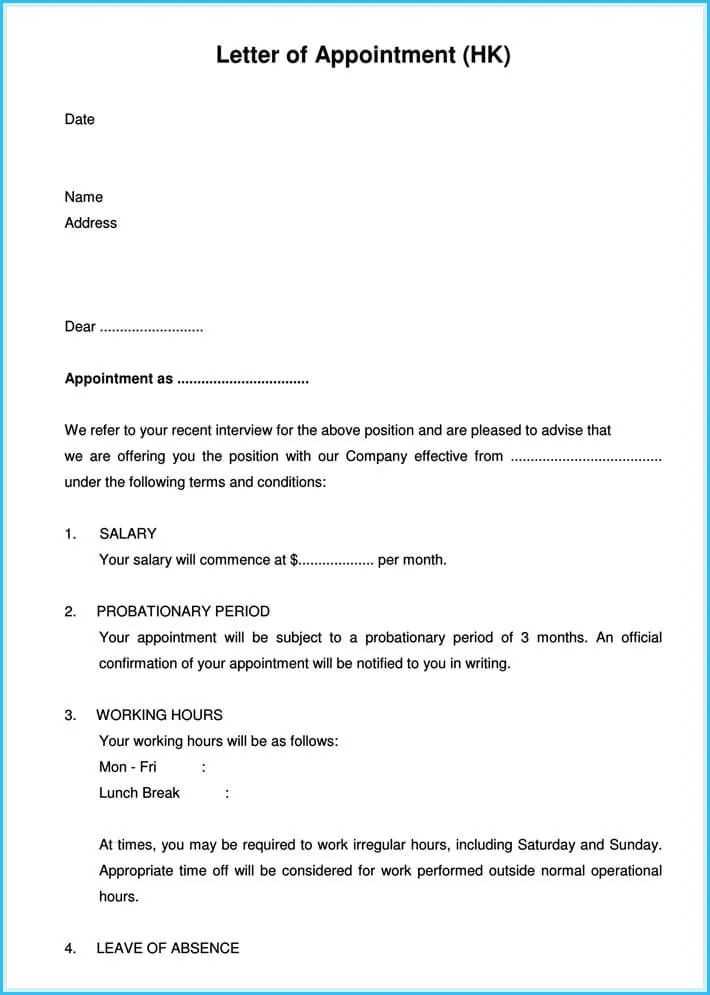
When drafting such a communication, avoid the following errors:
- Vague language: Be clear and specific about expectations and timelines.
- Negative tone: Ensure that the message remains supportive and encouraging, even if performance issues are addressed.
- Delayed delivery: Send the notification promptly, well before the original review date.
By following these tips, you ensure that the communication remains professional and effective. Below is an example of a formal message to send to the employee.
Dear [Employee Name], We are writing to inform you that the evaluation period will be extended by [X] weeks. During this time, we will focus on the following objectives: [List of objectives]. This additional time will allow both of us to make a well-informed decision regarding your future with the company. Best regards, [Your Name] [Your Position]
By following this format, employers can ensure clarity, professionalism, and a smooth continuation of the evaluation process.